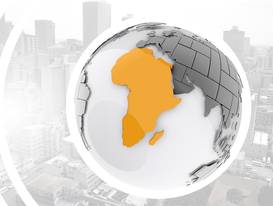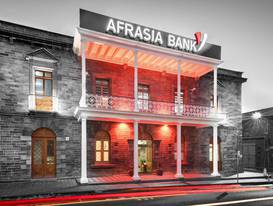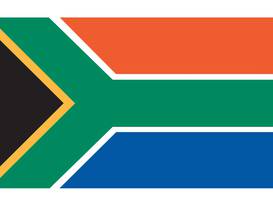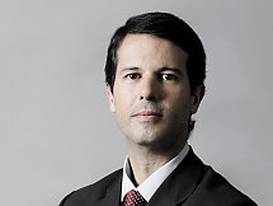
Mauritius Fintech Market: Golden opportunity to Preserve the Economic Miracle
By Samar Abuwarda, Independent Consultant of Global Capital Partners London and Senior Advisor at N-Strategy Consulting Service

By Samar Abuwarda, Independent Consultant of Global Capital Partners London and Senior Advisor at N-Strategy Consulting Service

Africa stands on the threshold of a historic economic expansion. A powerful combination of youthful demographics, rapid urbanization, the rise of a confident middle class, and steady improvements in business environments has positioned the continent as one of the most compelling investment destinations of the 21st century.

South Africa’s financial markets are undergoing a profound structural transformation that will reshape the landscape for banks, corporates, and particularly asset managers. The long-standing Johannesburg Interbank Average Rate (JIBAR), which has been the dominant interest rate benchmark for floating-rate instruments in the country, is being phased out. In its place, the South African Reserve Bank (SARB) is ushering in the South African Rand Overnight Index Average (ZARONIA)—a near risk-free rate (NRFR) designed to reflect real market transactions and enhance financial stability.

In recent years, several Western banks and financial institutions have implemented policies aimed at reducing support for fossil fuel projects, especially in Africa. This has led to a sharp decline in investment in the continent’s oil and gas industry, a sector that is crucial for its economic future and energy needs. The African Energy Chamber (AEC) argues that these institutions are practicing “financial apartheid,” arguing that while similar projects receive support in Europe, Africa’s high-cost energy projects are being neglected.

RMB has released the highly anticipated 2024 edition of its Where to Invest in Africa report, a comprehensive analysis of the top investment destinations on the continent. The report, which has been developed in collaboration with the Gordon Institute of Business Science (GIBS), leverages a robust methodology that has been updated to reflect new data sources, taking into account a variety of factors that have been proven to determine a country’s progress and therefore its investment potential.

Samar Abuwarda, a retired banking and investment professional, looks into the Sovereign Fund of Egypt’s performance since 2020 and how it could take advantage of the current events occurring in the Egyptian economy.

Even though several negative factors impacted the investment environment in 2023, South African markets followed global peers higher in the final quarter with the FTSE/JSE All Share Index ending the year at 9.3%, which was marginally behind bonds at 9.7% but ahead of cash, at 7.8%. The standout performance for 2023 came from global equities, with the All Country World Index (ACWI) returning 31.3% (in rand).
-crop-c0-56__0-25-273x206-70.jpg)
South Africa, as Africa’s third largest and most diversified economy in the African continent, holds immense potential for economic and social development. With its abundant natural resources, youthful population, resilient infrastructure, and deep capital markets, South Africa can regain its position as a dynamic force on the African stage. However, to harness this potential fully, critical challenges like power shortages and unemployment must be addressed.

The African landscape is experiencing a meaningful transformational shift as a result of the mushrooming of small and medium businesses across the continent, with more than 2,000 African start-ups – out of 3,000 – having secured investment from venture capitalists.

The South African investment community and pension funds, in particular, are sitting on the cusp of an infrastructure boom that provides an excellent opportunity for diversifying portfolios and supports the development of critical infrastructure for the country.

Angola raised $1.75bn in overseas markets this month following three other Eurobond issues in 2015, 2018 and 2019. The government said that $750m of the proceeds from this debt sale will be used to buyback existing Eurobonds due in 2025 and 2028 and the remainder to finance its budget.

The South African hedge fund industry ended 2021 with assets under management of R86.93bn, according to Association for Savings and Investment South Africa (ASISA).

The Africa powerhouse
-crop-c0-44__0-3-273x206-70.jpg)